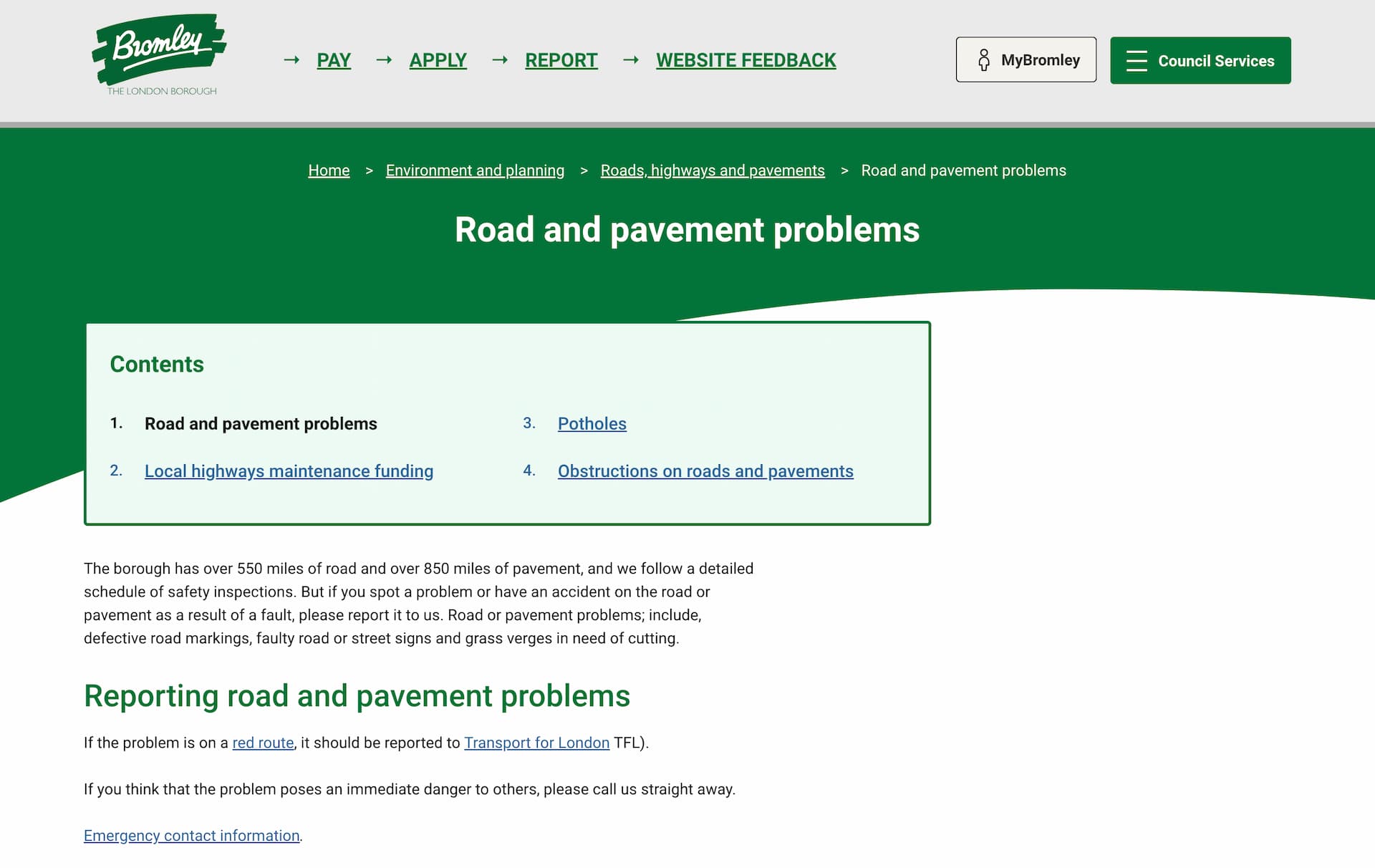When Will the Roads in My Area Be Fixed?
November 26, 2024 Road Issues, Road Resurfacing 5 min read

Road conditions can often feel like an endless source of frustration. Picture driving over potholes that jolt your car or navigating streets that seem more like patchwork than proper pavement. Damaged roads can disrupt your daily routine, cause damage to your vehicle, and even pose safety risks. This article will guide you through the process of finding out when roads in your area will be repaired.
Understanding the timeframes for road repairs is crucial. Poorly maintained roads not only affect your travel time but can also lead to accidents and vehicle damage. Knowing which authorities are responsible for road maintenance and when repairs are scheduled empowers you as a resident. We’ll explore the steps to uncover this information, helping you identify the relevant local authority, understand the budgeting process, and find reliable repair timelines in your area.
Understanding the Local Road Repair Process
Identifying the Responsible Authority
The first step is finding out which authority is responsible for road maintenance in your area. In the UK, this responsibility typically falls to your local council, whether it’s a district, borough, or county council. For instance, if you live in Keston, you would check the Bromley Council website (bromley.gov.uk). In other areas, you might look at websites for councils such as Hertfordshire County Council or Manchester City Council.

Bromley Council website
Highways England (now known as National Highways) is responsible for major motorways and trunk roads. Local councils handle maintenance for smaller roads and residential streets.
The Budgetary Process
Road repairs in the UK are funded through a combination of local council budgets, central government funding, and sometimes contributions from developers (Section 106 agreements). Local councils allocate funds for immediate repairs, while major projects might receive additional support from central government schemes or regional funding bodies.
For instance, in England, the Department for Transport (DfT) provides funds through the Highways Maintenance Block and other grants. Understanding how funding is allocated can help you see why certain repairs may be prioritised.
Common Road Repair Methods
Common road repair techniques include:
- Patching: Filling potholes and cracks.
- Resurfacing: Applying a new layer of asphalt to improve the surface.
- Full Reconstruction: Completely rebuilding the road, often necessary for severe damage.
Understanding these methods can provide insight into the types of repairs needed in your area.
Finding Your Area’s Road Repair Schedule
Online Resources
Your local council’s website is the best place to find information on road repair schedules. Many councils have dedicated sections for roadworks and maintenance updates. For example:
- London: The Transport for London (TfL) website provides details on roadworks across the city.
- Manchester: Manchester City Council’s website lists current and upcoming repairs.
- Birmingham: Birmingham City Council also posts updates on their site.
Additionally, checking social media platforms and local authority X (formerly Twitter) accounts can be helpful, as councils often post roadwork updates there.
Public Meetings and Forums
Town hall meetings and local council forums are valuable opportunities to gather information. Attending these events gives you direct access to officials who manage road repairs. You can ask questions, voice concerns, and get updates on repair timelines.

Local Council public meeting
Contacting Local Officials
Don’t hesitate to contact your local councillor or the council’s highways department directly. You can reach them via phone, email, or online forms. Be prepared with details such as the location and nature of the road issue.
Interpreting Road Repair Information
Understanding Project Phasing
Large road projects are often carried out in phases, which can affect completion times. Knowing these phases can help you understand when specific repairs will occur and why delays might happen.
Factors Affecting Delays
Several factors can cause delays in road repairs, including:
- Weather: Heavy rain or snow can halt work.
- Material Shortages: Sometimes essential materials may be delayed.
- Unexpected Issues: Hidden damage can extend project timelines.
Local news reports and council announcements often provide insights into the status of ongoing projects.
Reading Official Documents
Official road repair documents can sometimes include jargon. Familiarising yourself with terms like “asphalt overlay” or “traffic management plan” will help you understand the details better.
Proactively Engaging with Your Local Council
Reporting Road Damage
Reporting road issues, such as potholes, can make a big difference. Most councils have online tools or hotlines for reporting problems. Providing photos and exact locations can help speed up the process.
Participating in Public Consultations
Public consultations allow residents to express their views on road repair projects. Providing constructive feedback helps ensure community needs are considered in planning and prioritisation.
Joining Local Advocacy Groups
Engaging with local advocacy groups focused on infrastructure can amplify your voice. These groups often have valuable resources and connections with officials, enhancing your ability to influence road maintenance decisions.
Alternative Transport Options During Repairs
Public Transport
If road repairs cause delays or closures, public transport might be a convenient alternative. Most UK cities have extensive bus, tram, and train networks to help you get around.
Cycling and Walking
Cycling or walking can be practical, especially for shorter journeys. These eco-friendly options also help you avoid traffic congestion caused by roadworks.
Ride-Sharing Services
Using ride-sharing services can provide flexibility during repairs. Services like Uber or Bolt allow you to avoid the stress of navigating poor road conditions.
Wrapping Up
Finding out when roads in your area will be repaired is straightforward with the right resources. Engaging with local councils, attending community meetings, and using online tools can keep you informed. By staying proactive, you can contribute to making your local roads safer and your daily commutes smoother.
Get your free surfacing quote
Let our team of experts handle your surfacing — get a free quote today.